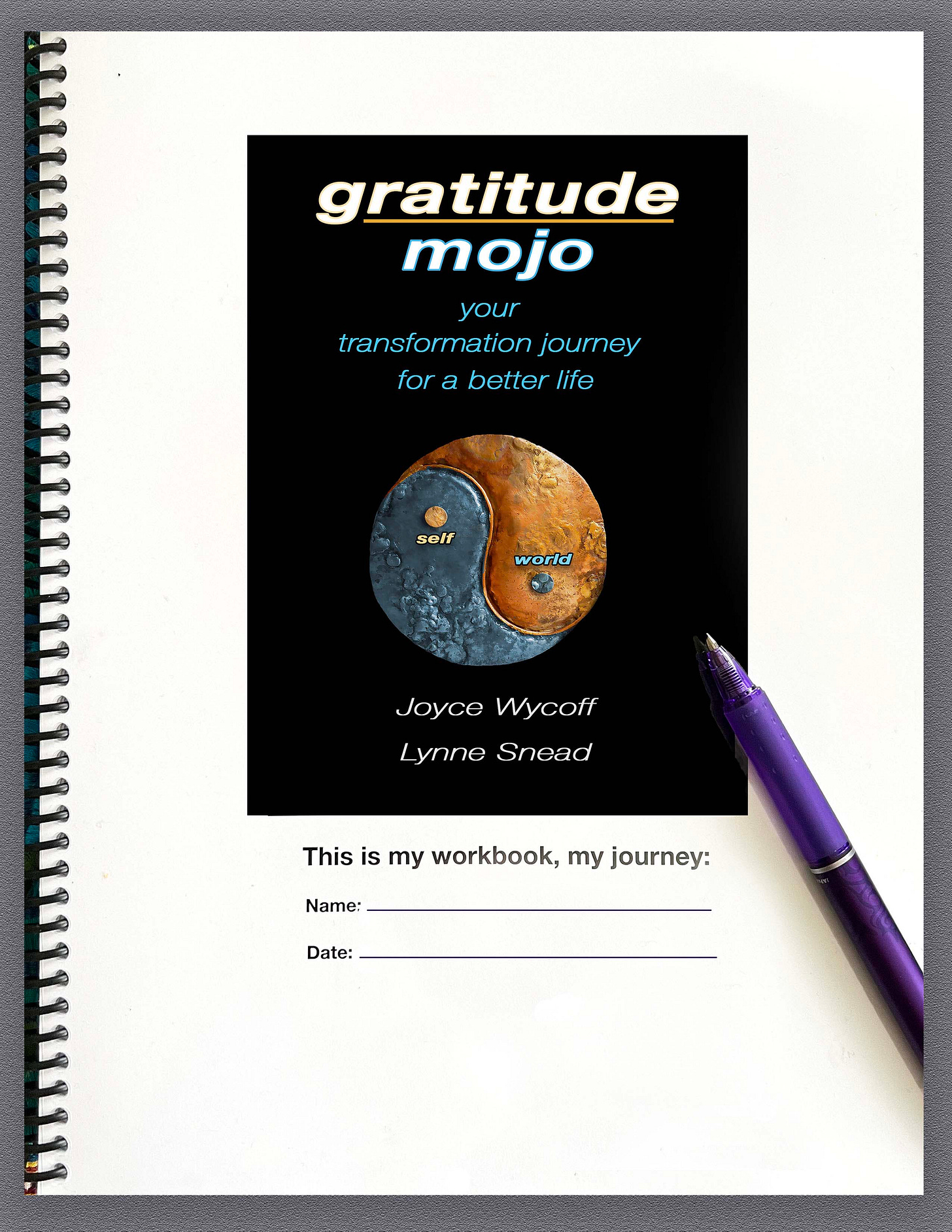Like many of us, I grew up in a time and place where feelings were best kept under wraps, in the background, out of sight. The idea was that we should simply ignore them, pesky little things that they were, and go on to the important stuff … work, chores, thinking stuff. My red-haired mom had no problem expressing her feelings, but thought children were too young to have them.
As you might suspect, learning to recognize, accept, and be grateful for my feelings has been a slow learning curve. This simple, powerful technique of naming and accepting my feelings has gradually given me a path into greater self acceptance and a more peaceful and grateful approach to life.
Excerpt from the 26-week journal: gratitude mojo … your transformation journey for a better life. (Free pdf for paid subscribers.)
It may seem incredible that the simple act of naming the emotion we’re feeling, whether it’s anger, frustration, fear, confusion, or dozens of others, seems to tame it according to studies at UCLA. The brilliant part of the response is that by reducing the intensity of the emotion, our rational minds have more time to choose an appropriate response.
The challenge with using this approach is that most people have a limited vocabulary of their feelings. Over time, researchers and psychologists have generally agreed on five or six big buckets of emotion: happiness, sadness, anger, fear, disgust, and surprise. That’s not all that helpful when there may be as many as 3,000 emotion words in English. Fortunately, you don’t have to know them all; there are thousands of emotion charts, wheels, and lists to help you learn the language of your own emotions.
In order to develop your own vocabulary of emotions, each day for the next four weeks offers you space to name your emotions. Eventually, you may recognize patterns of emotions and response, gradually developing more fluency with your emotions and your response to them.
Source: “Getting Unstuck: The Power of Naming Emotions,” by Michael Miller, Six Seconds, the Emotional Intelligence Network
My first introduction to emotions as something real, an important part of who we are, came from Candace Pert, PhD, author of Molecules of Emotion: Why you feel the way you feel who was an internationally recognized neuroscientist and pharmacologist who published over 250 research articles. She was a significant contributor to the emergence of Mind-Body Medicine as an area of legitimate scientific research in the 1980’s, earning her the title of “The Mother of Psychoneuroimmunology”, and “The Goddess of Neuroscience” by her many fans.
Not only was Dr. Pert a transformative scientist, she broke barriers against the scientific environment that highly favored male scientists. This brief video gives you a sense of who she was and the scientific foundation she provided for the whole mind/body field.
Coming next Saturday, July 1: Gratitude and Attention.
"When we're convinced we have to earn joy, we don't notice the ten thousand places where it is already waiting, asking, waving for our attention."
— Geneen Roth






This is a great resource and a valuable post. Your work on Gratitude Mojo is miles beyond a simplistic "count your blessings" approach to journaling one's life. Including Dr. Pert's video is a stroke of genius that lifts your message into a mainstream discussion and links our Substack contributions to the larger narrative. Well done! Dr. Perez Ferguson
Joyce, this is the first thing I've read this morning. You have me so excited. Mind-body health is my passion. It's what has helped my husband after almost dying from a stroke--not the horrific drugs that mentally, physically, and emotionally sent him into despair and nearly killed him again (he couldn't eat, sleep, or think on the psychotropics they put him on). We've undone the damage with whole food, sunshine, playing music, walks in nature, meditation, breathing, and humor. He's healthier than he's been in decades.
Thank you for introducing me to this amazing person, the scientist, Dr. Joyce Pert. I now plan on learning more about her. Her energy and passion have me crushed to hear she's no longer earth-bound to continue her important work.
I am learning so much about how our emotions affect our bodies. I want to learn about Dr. Pert's studies.
Thank you for sharing this information. Speaking of gratitude, I'm grateful to have found you.